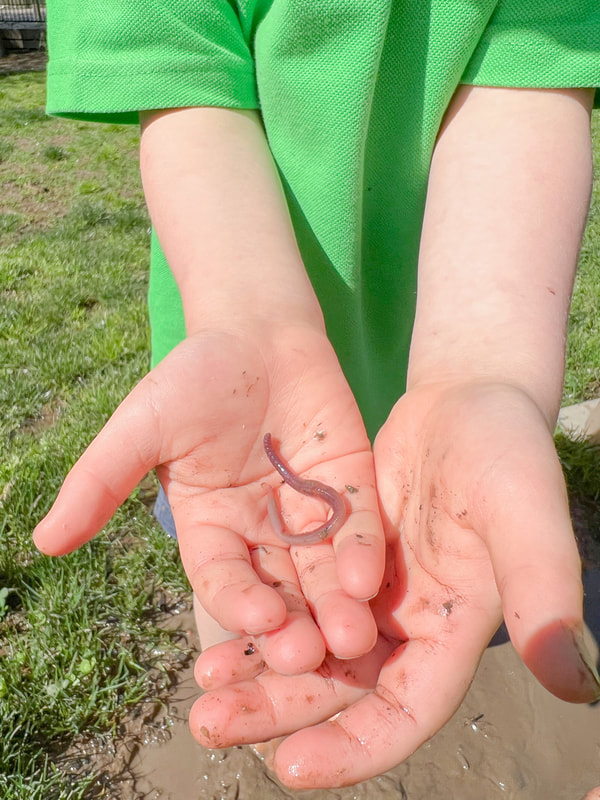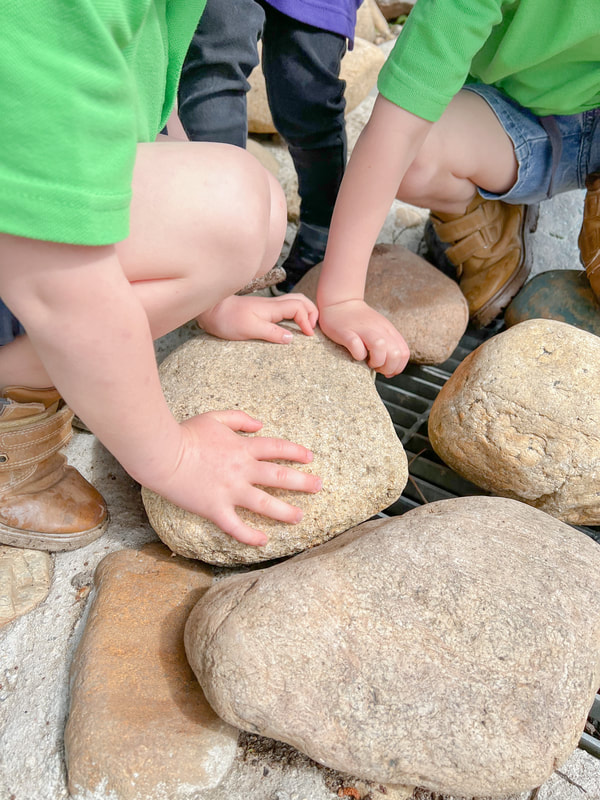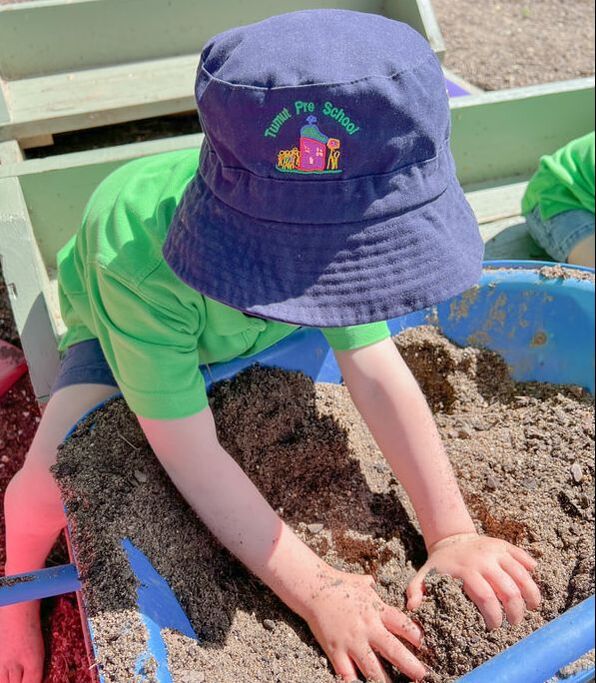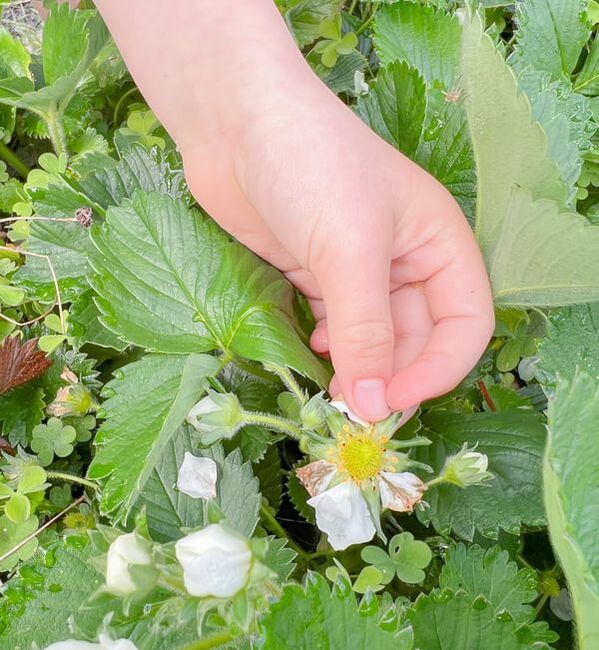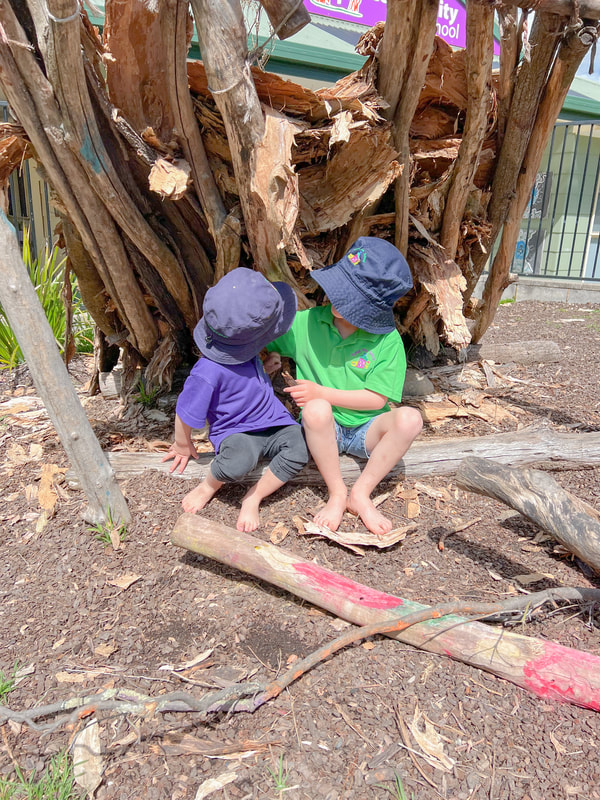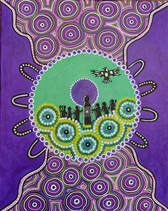|
Cycle of planning
Our cycle of planning involves and reflects children's lives, their strengths, interests, curiosities, developmental needs and dispositions for learning. It is inclusive of each individual child, their families, the community and cultures and builds upon their capabilities and experiences. The curriculum plan outlines the program of experiences and learning activities that have been planned or have spontaneously occurred in both the indoor and outdoor environments. This information is shared through OWNA and offers the opportunity for families to provide input and feedback. Our programs include a balance of planned intentional teaching experiences, experiences to extend on children's individual interests, family led learning and spontaneous teachable experiences and activities and longer projects. We use collaborative floor books that encourage children to co-program their own learning with their educators. |
|
Assessment of children's learning
The assessments that we use at Preschool are aimed at understanding what children know, and to gain insights about meaning and gain deep understanding of the child to enrich and extend their learning. We use progress through the EYLF Learning outcomes to support children's learning and development. Families are involved in our assessment processes and our focus is on the positive strengths of children. We use conversations with children, observed play and the theory and practice of teaching (pedagogy) to extend and co-construct learning opportunities. Each child's learning progress will be recorded and shared with families in a variety of meaningful ways. |
|
Individual Learning Plans and Summative Assessments Upon enrolment at Tumut Community Preschool our educators will arrange a meeting with every family and their child to collaboratively develop an Individual Learning Plan often referred to as an ILP. We value families as the child’s first teacher and so we see this as an opportunity to gather information about your child’s interests, strengths, developmental and learning needs. We then develop specific goals for your child that educators will use to regularly plan meaningful learning experiences and activities to support the child to achieve their individual goals. Summative assessments are developed by our educators for every child at preschool at the end of term 2 and term 4. Developing summative assessments allows our educators to review and interpret documentation of children’s learning with reference to the Early Years Learning Framework outcomes. This information is further analysed and reflected on to establish any gaps, determine extensions for learning, make additions or adjustments to goals in ILP’s and reflect on the effectiveness of teaching strategies. The summative assessments are then shared and discussed with families during a second meeting to seek additional feedback and input. |
|
School Readiness - Continuity of Learning
Starting school is a big step for children and assisting them to transition to school successfully is important for their journey to be successful lifelong learners. School readiness is not a separate part of our preschool program, rather it is integrated and embedded in everything we do with children in our play-based approach to teaching and learning. Our approach places particular importance on building children’s resilience, self help skills, developing confidence, respectful relationships with others, communication skills and the value of a quality play environment. We have a strong collaborative relationship with all our local primary schools and children in the year before school will have the opportunity to participate in our transition to school program (Term 3 and 4) where our educators accompany the children to the school in which they will be enrolling to further support their transition process. |

